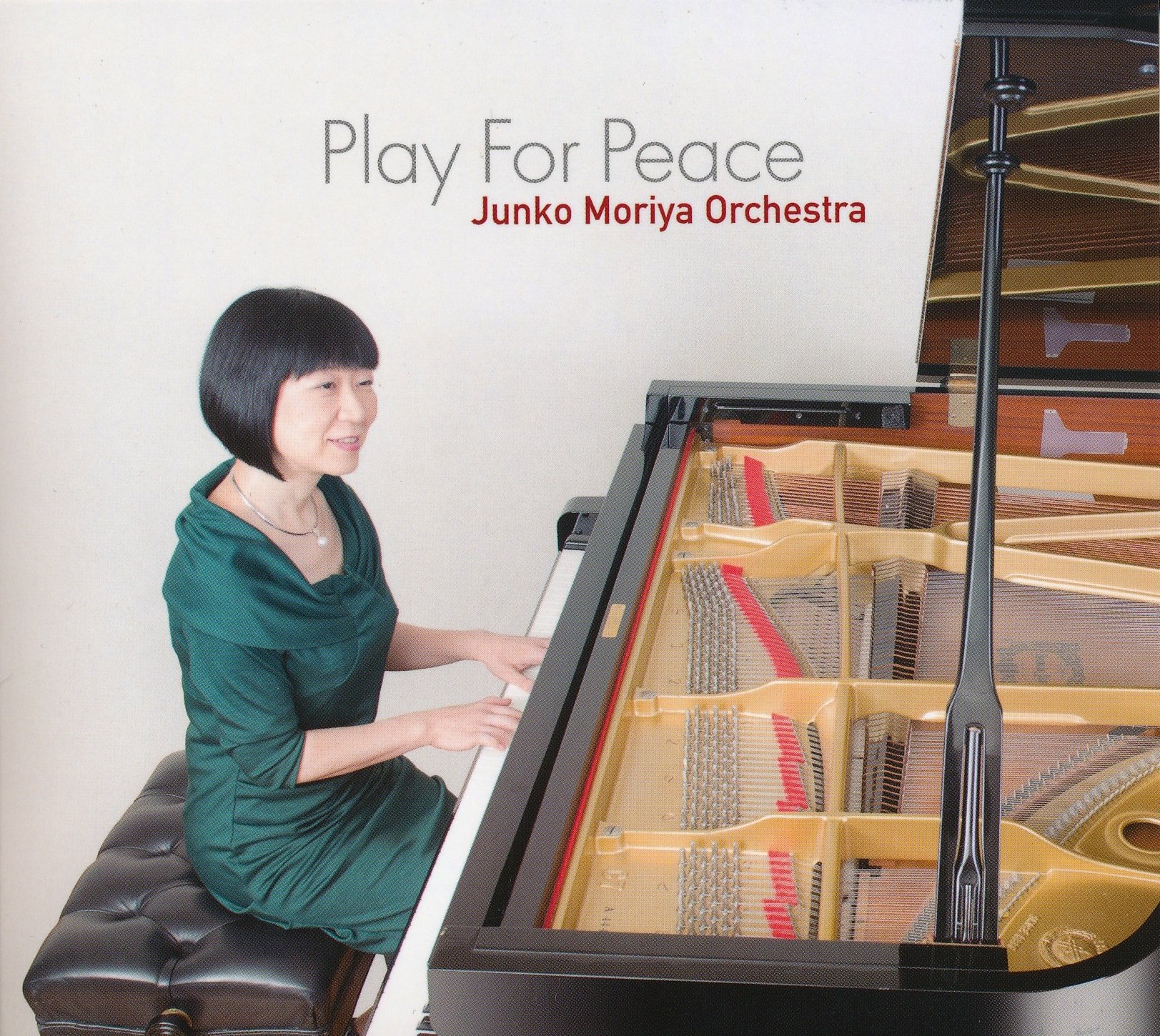Junko Moriya Orchestra “Play For Peace”
(Spice of Life 2015)
Junko Moriya守屋 純子—piano, composer & arranger
Eric Miyashiroエリック・ミヤシロ—trumpet
Mitsukuni Kohata木幡 光邦—trumpet
Michael Bookmanマイケル・ブックマン—trumpet
Yoshiro Okazaki岡崎 好朗—trumpet
Kazuhiko Kondo近藤 和彦—saxophone
Hidenori Midorikawa緑川 英徳—saxophone
Masanori Okazaki岡崎 正典—saxophone
Andy Wulfアンディー・ウルフ—saxophone
Dairo Miyamoto宮本 大路—saxophone
Yuzo Kataoka片岡 雄三—trombone
Haruki Sato佐藤 春樹—trombone
Azusa Tojo東條 あづさ—trombone
Junko Yamashiro山城 純子—trombone
Osamu Koichi納 浩一 —bass
Junji Hirose広瀬 潤次 —drums
Yoichi Okabe岡部 洋一 —percussion
This CD of big band jazz is quite unusual. Jazz musicians usually turn to passion or love affairs for inspiration, but this recording turns to Japanese history. Commissioned by Okazaki-shi, the birthplace of Ieyasu Tokugawa on the occasion of the 400th year anniversary of his rule, Moriya has made a set of recordings that swing hard.
The first suite of five originals were inspired by places, battles and sayings of Ieyasu, while the last four songs are standards. The liner notes are extensive, explaining how Ieyasu searched for peace, even as he followed the samurai spirit of war to unite Japan and establish the foundation for modern Japan. While the history and politics will surely find differences of opinion, the quality of the tunes and arrangements, as well as the musicianship will overcome any questions.
The five tunes from the jazz suite are interestingly jazz-like, but with hints and brushes of Japanese aesthetics. The way of playing on those five interrelated pieces, too, feels Japanese in a way that the standards feel firmly in jazz tradition. They have a drama that matches the drama of Ieyasu’s life and times, moving between hard-swinging upbeat passages and contemplative sections, through them all, the musicians show their virtuosity.
Assembling the band from the top shelf of Japanese jazz musicianship, these pieces would also be a delight to hear live, if only so the players would have more time to stretch out and improvise. The tightness of the playing is startling. Few other big bands are run with such exceptional focus and discipline, but in a way that swings hard.
Standout tunes from the five-song suite would be hard to choose, since the songs flow together like a musical-historical narrative, but “House of the Winner” feels the most comfortable, moving through carefully crafted sections and keeping enough open time for great solos.“This is For Stan,” written for Stan Kenton and picking up on the cool intensity of his big band, is the standout from the four standards. The arrangements, all by Moriya, are exceptionally appealing. The fluid motion of the tunes, the just-right dynamics and the deep sense of what can be done with so many great musicians all make this recording big band jazz as it should be done. That the recording also harkens back to Japanese history makes it just that much more special.
Junko Moriya CD Review
Junko Moriya CD review
Junko Moriya Interview
Junko Moriya Live review

